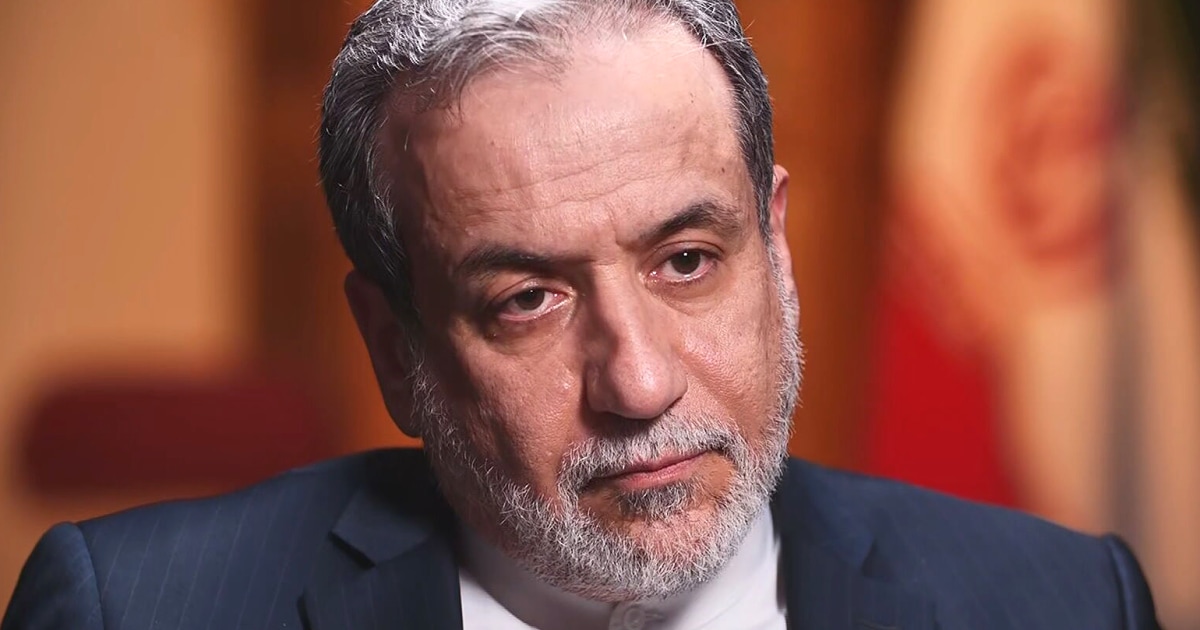Iran’s Concerns Over Trust in U.S. Diplomacy
In a recent interview with NBC News, Iranian Foreign Minister Abbas Araghchi expressed deep uncertainty about Iran’s ability to trust the United States amid ongoing diplomatic discussions. This skepticism was heightened following an Israeli aerial attack on Iran, which occurred just two days before scheduled talks between U.S. and Iranian officials. Araghchi’s statements reflect a broader context of mistrust that colors these sensitive negotiations.
Timing and Trust Issues
The recent Israeli airstrikes have sparked significant concern within the Iranian government. Araghchi conveyed that such military actions might undermine the integrity of diplomatic dialogue. He hinted that the U.S. could be using the talks as a mere "cover" for Israel’s aggressive actions, raising questions about Washington’s genuine interest in a peaceful resolution.
U.S. Position on Negotiations
White House Press Secretary Karoline Leavitt stated that President Trump planned to make a decision on negotiations within two weeks, though many observers note that Trump has often failed to deliver on such timelines. The Trump administration’s willingness to engage in serious negotiations is still viewed critically by Iranian officials, who are wary of the U.S.’s commitment to achieving a diplomatic resolution.
Diplomatic Roadblocks
Araghchi made it clear that Iran’s willingness to engage in negotiations is contingent upon a halt to Israeli military actions. "We’re not prepared to negotiate with them anymore, as long as the aggression continues," he said, emphasizing the importance of a stable environment for any fruitful talks to occur.
Stance on Uranium Enrichment
A crucial sticking point in the negotiations centers on uranium enrichment. Araghchi reiterated Iran’s determination not to abandon its uranium enrichment program, a demand made by Trump. "Zero enrichment is impossible," he stated, highlighting that the right to enrich uranium for peaceful purposes is integral to national pride and dignity for Iran.
Communication with U.S. Officials
Interactions between Iranian officials and the U.S. envoy, Steve Witkoff, have been fraught with challenges, according to Araghchi. He acknowledged Witkoff’s demeanor as respectful but also pointed to a troubling inconsistency in the U.S. position. “He changed his words every time we met,” he remarked, revealing the underlying tensions in the negotiating process.
The Nature of Engagement
While communication between Iranian and U.S. representatives continues, Araghchi clarified that exchanges don’t equate to genuine negotiations. "They have asked us to negotiate, but we negotiate only when it is negotiation and not dictation," he said, establishing clear boundaries regarding how Iran intends to approach any discussions with the U.S.
Resilience Against Military Threats
Addressing potential military escalation, Araghchi maintained that Israeli airstrikes on Iran’s nuclear facilities would fail to eliminate the country’s technological capabilities. “The knowledge is here, the technology is there,” he asserted, underlining Iran’s longstanding expertise in its nuclear program.
Preparedness for Retaliation
If the U.S. were to engage in military action against Iran alongside Israel, Araghchi warned of retaliatory measures. He framed this in the larger context of self-defense, stating that every country has the right to protect its sovereignty.
Comments on Israel’s Threats
Regarding threats to target Iran’s Supreme Leader, Ayatollah Ali Khamenei, Araghchi condemned such acts as “the biggest crime” but confidently asserted that Israel would not succeed. He characterized Khamenei’s leadership as legitimate and respected, rooted in historical significance and popular support across Iran.
Reaction to Trump’s Statements
When discussing Trump’s recent comments about targeting Khamenei, Araghchi perceived them more as an insult than a credible threat, remarking on the unexpected nature of such language from a president of a major power. He expressed disappointment not just in the words but in what they signify about U.S.-Iran relations.
Path Forward for Diplomacy
To pave the way for renewed negotiations, Araghchi suggested a straightforward solution: the U.S. should urge Israel to halt its military actions. "What it needs is only a telephone call from Washington to Tel Aviv to stop everything," he proposed, suggesting that a ceasefire could quickly restore diplomatic channels.
Historical Contexts of Resilience
Reflecting on Iran’s historical endurance, Araghchi pointed out that the nation has withstood significant adversities, including a lengthy war with Iraq. He emphasized Iran’s rich cultural history and national pride, challenging the notion that military actions could undermine the nation’s continuity.
Diplomatic Expertise
Araghchi, a seasoned diplomat who played a pivotal role in the 2015 nuclear deal, continues to navigate the complex landscape of international diplomacy. His insights underscore the intricate dance of negotiation, trust, and national pride at play in the dense tapestry of U.S.-Iran relations.


